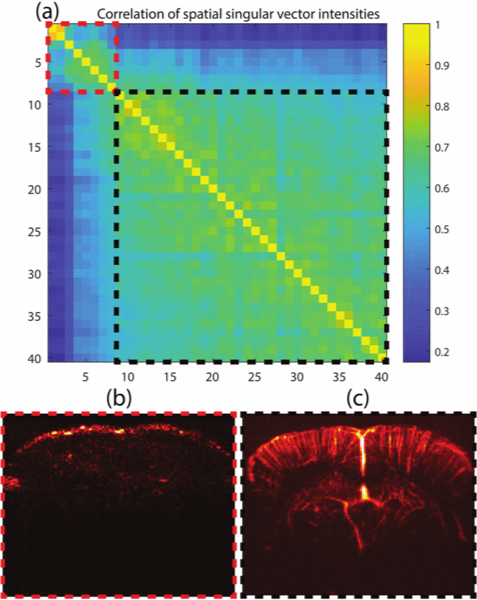MSc thesis project proposal
Accurate blood signal extraction to study brain function with functional ultrasound
Recent advances in ultrasound technology now allow to acquire images at very high frame rates, boosting the traditional power Doppler signal-to-noise ratio. This facilitates the mapping of subtle variations in blood volume and flow related to neuronal activity. The resulting technology, functional ultrasound (fUS) imaging, can monitor neural function from the whole depth of the brain with a spatial resolution of 50-500um and a temporal resolution of tens of milliseconds. This previously unseen spatiotemporal detail opens new horizons in understanding healthy brain function as well as serious neurological disorders such as epilepsy. However, besides blood motion, fUS also captures clutter signals caused by slowly moving tissue. Current solutions to filter out clutter and reconstruct vascular images are suboptimal. Therefore, the goal of this thesis is to establish a novel signal processing algorithm that accurately extracts blood motion from the noisy images. The work is in collaboration with the Cube (Center for Ultrasound Brain imaging at Erasmus MC). If successful, the signal processing software developed in this thesis may be used for data analysis by neuroscience researchers and clinicians.
Assignment
Current solutions to filter out clutter signals are based on singular value decomposition and adaptive thresholding to identify the tissue and blood subspaces. This approach assumes that the subspaces are orthogonal, which is a hard and arbitrary constraint from the physiological point of view. Therefore, the goal of this thesis is to establish a blind source separation framework based on a signal model that is physiologically more plausible. This may be achieved by physiologically relevant constraints such as sparsity; or low rank tensor decompositions which yield a unique solution under mild constraints. The thesis work will start with a literature review to understand functional ultrasound imaging technology, current signal processing solutions to filter out clutter signals and state-of-the-art blind source separation techniques including tensor decompositions. Subsequently, the student will propose and implement a new filtering approach. The proposed technique will be tested and evaluated using functional ultrasound signals recorded in mice during a visual experiment or during epileptic seizures.
Requirements
We are looking for a student from electrical engineering or biomedical engineering with a strong signal processing background. Good programming skills (in Matlab, or Python, …) are also required. Previous experience with biomedical signals and genuine interest in neuroimaging is appreciated.
Contact
dr. Borbála Hunyadi
Signal Processing Systems Group
Department of Microelectronics
Last modified: 2023-08-08
